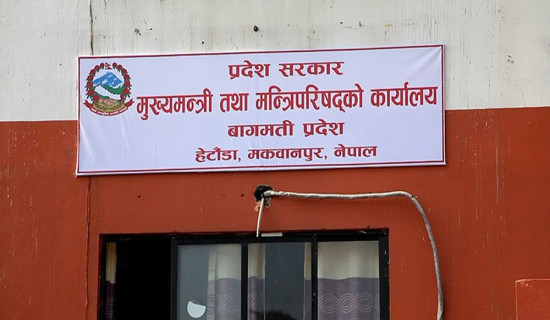- Thursday, 20 November 2025
Competent Public Attorneys Can Strengthen Judiciary
Any democratic society must have a fair and independent judiciary. It is critical to uphold the rule of law and hold people and organisations responsible for their actions. A fair and independent judiciary is distinguished by several key characteristics, including the impartiality of judges, lawyers and court staff, who must be impartial and objective in their decision-making, independence from other branches of government as well as external interests, transparency of court proceedings and decisions, accessibility of the legal system to all members of society, and accountability of judges and other members of the judicial system.
An independent and impartial court is required to defend individuals' rights and to ensure that justice is delivered. It is also critical for preserving faith in the judicial system and the rule of law. As the judiciary plays an important role in Nepal's system of governance by interpreting and applying the country's laws and ensuring their fairness and independence, public prosecutors, along with bars and private lawyers and attorneys, can play an important role in ensuring our judicial system’s fairness and independence.
When Prime Minister Sher Bahadur Deuba opened the 4th national conference of public prosecutors, he not only underlined the necessity for a fair and independent judiciary in the country. He, however, requested the public prosecutors to work in a balanced way to protect the court's reputation. While engaged in the legal process, public prosecutors, often known as government attorneys or prosecuting attorneys, who bring lawsuits on behalf of the government in criminal matters, must resist extraneous influences and pressures. They must be professional and competent since they play a significant role in making the judiciary and legal system trustworthy by thoroughly investigating criminal cases. In the meantime, efficient delivery from these prosecutors helps minimise criminal cases in the nation and ensure fairness of judicial system.
Public attorneys have an important role in upholding the judiciary's sanctity and dignity. They are in-charge of representing the state or government in criminal procedures, as well as filing accusations against persons or organisations suspected of criminal activity. One of the primary duties of public prosecutors is to guarantee that the legal process is followed in a fair and unbiased manner. This involves presenting evidence and defending matters in court in accordance with justice and the rule of law ideals.
In addition, public prosecutors must guarantee that the accused's rights are safeguarded and that the sentence imposed by the court is suitable and commensurate to the offence committed. Public prosecutors contribute to the integrity and credibility of the court system by carrying out these tasks. They play an important role in guaranteeing the administration of justice and the protection of the rights of persons and organisations.
In doing so, they contribute to the overall stability and fairness of the legal system and help to maintain public trust in the judiciary, which without a doubt contributes to maintaining stability and integrity of Nepal's legal system and is an essential component of the country's democratic system. The court, on the other hand, may operate in a fair and impartial manner provided public prosecutors carry out their responsibilities without prejudice, influence, or external pressures.

.jpg)















